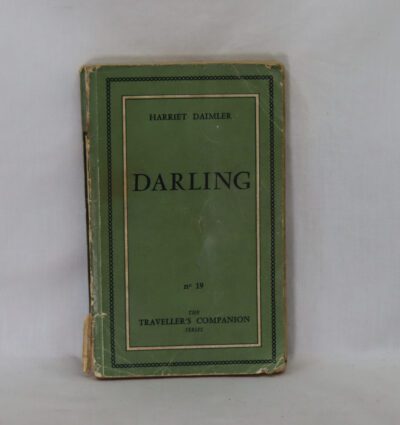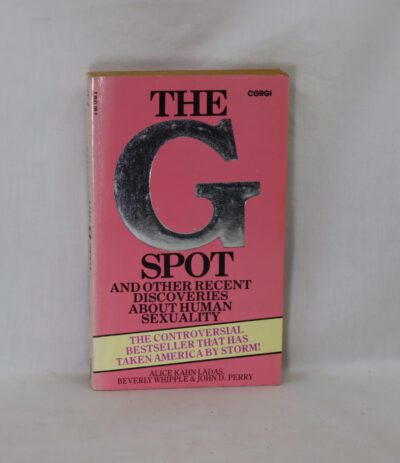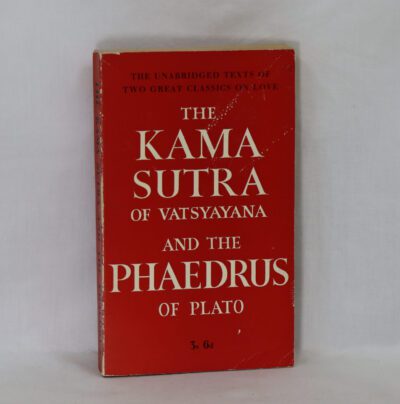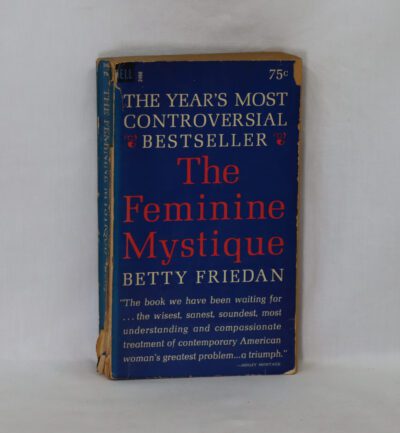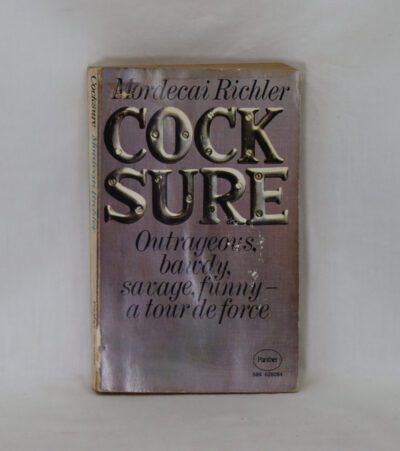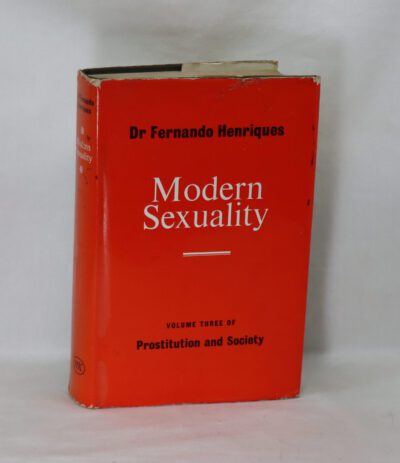The Idiot.
By Fyodor Dostoevsky
Printed: 1946
Publisher: William Heinemann Ltd, London
Edition: New impression
| Dimensions | 13 × 19 × 4 cm |
|---|---|
| Language |
Language: English
Size (cminches): 13 x 19 x 4
Condition: Fine (See explanation of ratings)
Item information
Description
In the original dustsheet. Red cloth binding with gilt title on the spine and front board.
F.B.A. provides an in-depth photographic presentation of this item to stimulate your feel and touch. More traditional book descriptions are immediately available.
One of his best works
The Idiot is a novel by the 19th-century Russian author Fyodor Dostoevsky. It was first published serially in the journal The Russian Messenger in 1868–69.
The title is an ironic reference to the central character of the novel, Prince Lev Nikolayevich Myshkin, a young man whose goodness, open-hearted simplicity and guilelessness lead many of the more worldly characters he encounters to mistakenly assume that he lacks intelligence and insight. In the character of Prince Myshkin, Dostoevsky set himself the task of depicting “the positively good and beautiful man.” The novel examines the consequences of placing such a singular individual at the centre of the conflicts, desires, passions and egoism of worldly society, both for the man himself and for those with whom he becomes involved.
Joseph Frank describes The Idiot as “the most personal of all Dostoevsky’s major works, the book in which he embodies his most intimate, cherished, and sacred convictions.” It includes descriptions of some of his most intense personal ordeals, such as epilepsy and mock execution, and explores moral, spiritual and philosophical themes consequent upon them. His primary motivation in writing the novel was to subject his own highest ideal, that of true Christian love, to the crucible of contemporary Russian society.
The artistic method of conscientiously testing his central idea meant that the author could not always predict where the plot was going as he was writing. The novel has an awkward structure, and many critics have commented on its seemingly chaotic organisation. According to Gary Saul Morson, “The Idiot violates every critical norm and yet somehow manages to achieve real greatness.” Dostoevsky himself was of the opinion that the experiment was not entirely successful, but the novel remained his favourite among his works. In a letter to Strakhov he wrote: “Much in the novel was written hurriedly, much is too diffuse and did not turn out well, but some of it did turn out well. I do not stand behind the novel, but I do stand behind the idea.”
Fyodor Mikhailovich Dostoevsky Russian: 11 November 1821 – 9 February 1881, sometimes transliterated as Dostoyevsky, was a Russian novelist, short story writer, essayist, and journalist. Dostoevsky’s literary works explore the human condition in the troubled political, social, and spiritual atmospheres of 19th-century Russia, and engage with a variety of philosophical and religious themes. His most acclaimed novels include Crime and Punishment (1866), The Idiot (1869), Demons (1872), and The Brothers Karamazov (1880). His 1864 novella, Notes from Underground, is one of the first works of existentialist literature. Numerous literary critics rate him as one of the greatest novelists in all of world literature, as many of his works are considered highly influential masterpieces.
Born in Moscow in 1821, Dostoevsky was introduced to literature at an early age through fairy tales and legends, and through books by Russian and foreign authors. His mother died in 1837 when he was 15, and around the same time, he left school to enter the Nikolayev Military Engineering Institute. After graduating, he worked as an engineer and briefly enjoyed a lavish lifestyle, translating books to earn extra money. In the mid-1840s he wrote his first novel, Poor Folk, which gained him entry into Saint Petersburg’s literary circles. Arrested in 1849 for belonging to a literary group that discussed banned books critical of Tsarist Russia, he was sentenced to death but the sentence was commuted at the last moment. He spent four years in a Siberian prison camp, followed by six years of compulsory military service in exile. In the following years, Dostoevsky worked as a journalist, publishing and editing several magazines of his own and later A Writer’s Diary, a collection of his writings. He began to travel around western Europe and developed a gambling addiction, which led to financial hardship. For a time, he had to beg for money, but he eventually became one of the most widely read and highly regarded Russian writers.
Dostoevsky was influenced by a wide variety of philosophers and authors including Pushkin, Gogol, Augustine, Shakespeare, Scott, Dickens, Balzac, Lermontov, Hugo, Poe, Plato, Cervantes, Herzen, Kant, Belinsky, Byron, Hegel, Schiller, Solovyov, Bakunin, Sand, Hoffmann, and Mickiewicz.
Dostoevsky’s body of work consists of 12 novels, four novellas, 16 short stories, and numerous other works. His writings were widely read both within and beyond his native Russia and influenced an equally great number of later writers including Russians such as Aleksandr Solzhenitsyn and Anton Chekhov, philosophers Friedrich Nietzsche and Jean-Paul Sartre, and the emergence of Existentialism and Freudianism. His books have been translated into more than 170 languages and served as the basis for many films.
Want to know more about this item?
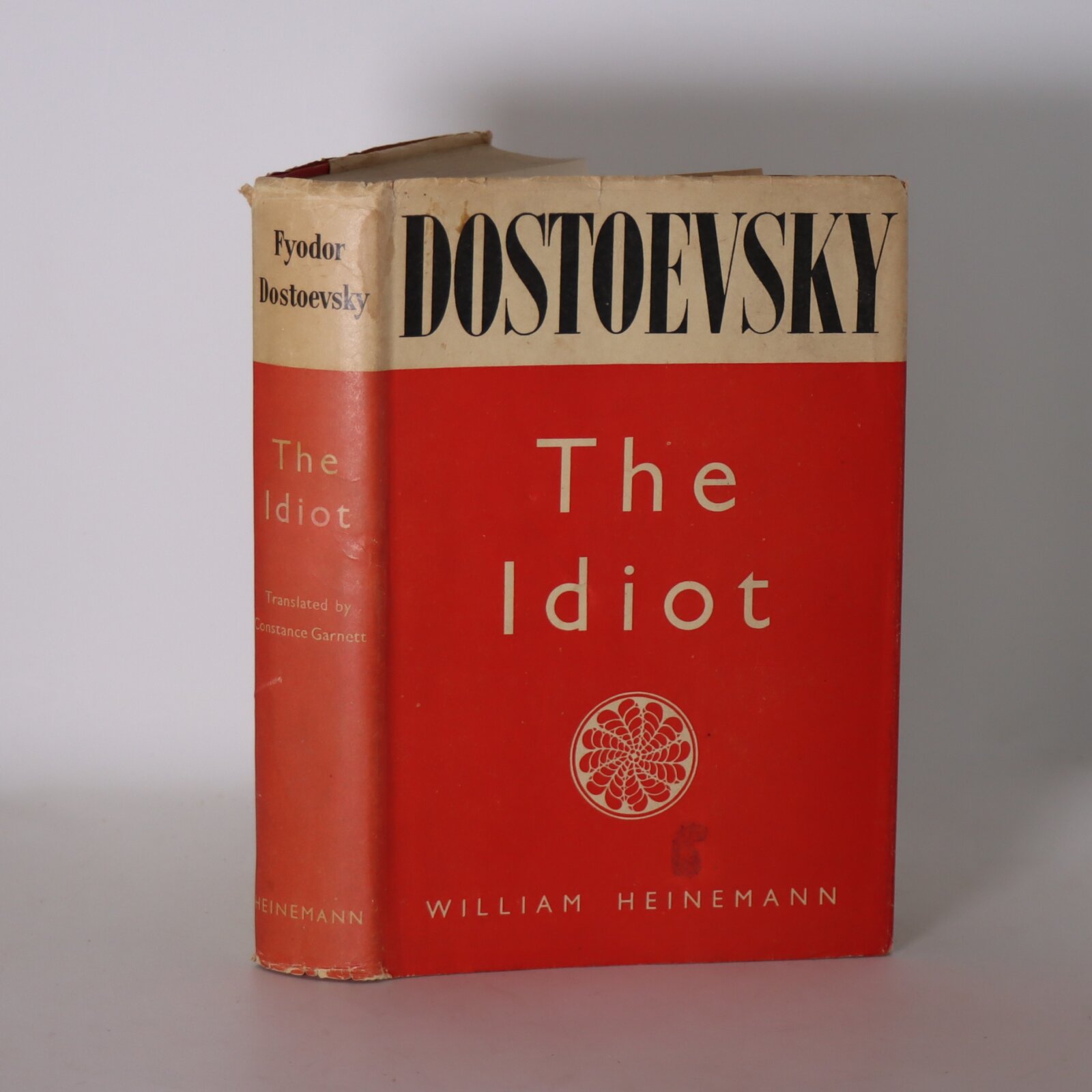
Related products
Share this Page with a friend


